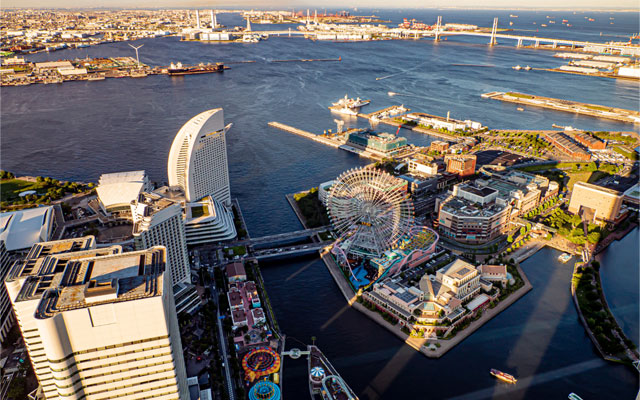An enthusiastic national convention bureau and an eager local scientific community have led the Asia Pacific Initiative on Reproduction (ASPIRE) to return to Japan for its 2021 congress, almost a decade since it last convened in Osaka in 2012.
Explaining ASPIRE’s destination choice, association co-founder PC Wong, said his team looked for destinations that satisfied these critical factors: strong support from the local scientific community, committed convention bureau, global accessibility in terms of air access and hassle-free visa requirements, costs, and presence of experienced PCOs.

Elaborating, Wong said the Japan National Tourist Organization (JNTO) was enthusiastic from the get-go, working with his office bearers to evaluate various Japanese cities that would meet ASPIRE’s objectives.
Although “most people would like to meet in Tokyo” and a majority of Japanese fertility specialists are located in and around Tokyo metropolis, Wong said Yokohama was chosen for the convention because of its close proximity to Haneda International Airport – a 30-minute car ride – and a suitable convention centre in the form of the soon-to-open Pacifico Yokohama North, while being comparatively less expensive than the capital city.
He opined that returning to Japan “was an easy decision to make” because the last gathering in Osaka had left a deep and positive impression on members.
“The Japanese have a knack for giving pleasant surprises. During our Osaka convention, we were surprised with a tuna cutting ceremony. It was very unusual for us foreigners, and therefore very impactful,” Wong recalled.
Bringing the convention back to Japan will also allow ASPIRE to benefit from the strong presence of local experts who will contribute to the programme as speakers.
“There are many Japanese specialists with vast knowledge and great ideas, but their command of English may sometimes hold them back from wanting to share what they know with the international community. ASPIRE hopes to identify great Japanese talents on their turf and then create opportunities for them to deliver a lecture or presentation on their expertise.
“We scout for talented speakers everywhere we go, with the aim of bringing more Asia-Pacific specialists into the spotlight. This is part of our legacy-building efforts for the local specialist community, and we’ve made good progress. More than 90 per cent of our scientific programme at ASPIRE 2020 in Manila will feature Asia-Pacific specialists. When we first started with our conventions, regional speakers contributed to just 50 per cent of our programme,” he explained.
ASPIRE 2019 in Hong Kong attracted almost 2,000 fertility clinicians and scientists from around Asia-Pacific, and Wong predicts an even greater number of attendees at the Yokohama edition due to early delegate boosting efforts by JNTO.
“We usually promote a convention a year ahead, but JNTO started to market ASPIRE 2021 this year. Right after the 2021 bid was won, JNTO, Yokohama CVB and Pacifico Yokohama went with us to Hong Kong to promote ASPIRE 2021, and will do the same when ASPIRE convenes in Manila next year,” he said.





















